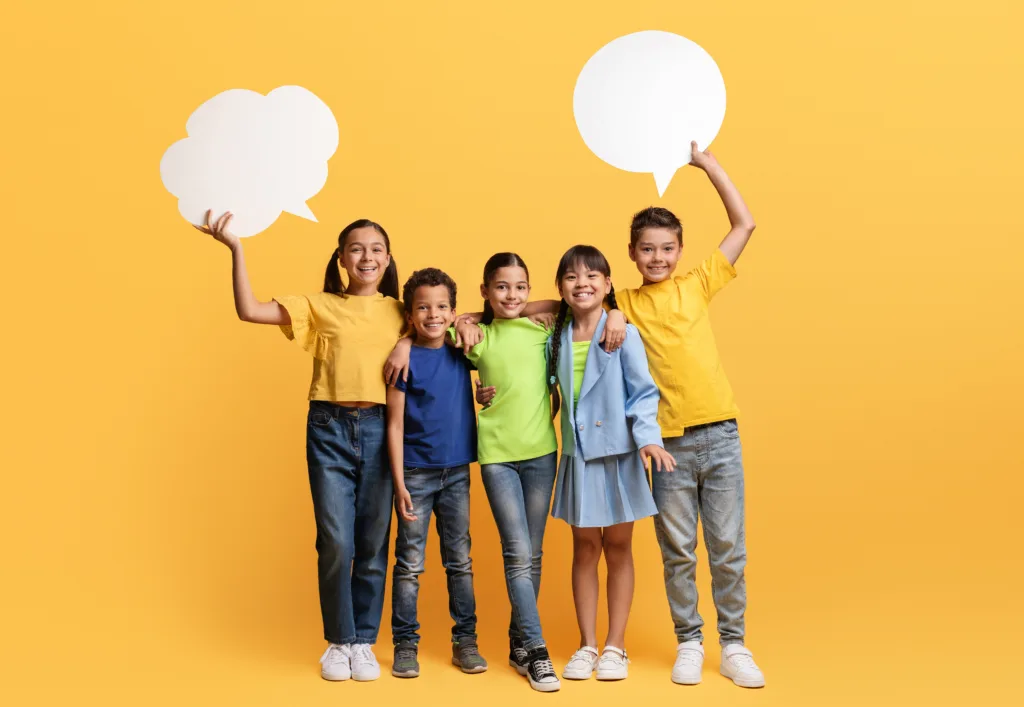Is My Baby Talking Enough?
Understanding Speech Milestones from 0 to 3 years
Language development is a critical part of early childhood. For a parent, often the doubt arises, if their baby is talking enough or is talking according to their age, that is, reaching speech milestones on time. While every child develops at their own pace, there are certain key markers or milestones we typically look for between birth and age 3.
To ease your stress, I have listed a few such markers for a given age range. Do remember, that achieving only one of them does not guarantee achievement of a milestone, therefore, when in doubt, it is best to speak to a professional.
0-6 months
- Gets startled by loud noises.
- Often quietens by a familiar friendly voice
- Often looks at person and responds by smiling
- When played with, laughs & uses other vocal expressions of pleasure
- Often uses sounds like /p/, /b/ and /m/.
- Starts to distinguish general meanings of anger and friendly voice patterns.
- Plays by making sounds and noises while alone or with others.
Worried your baby isn’t responding to sound or voice?
Connect here for guidance on what to do next and when to consult a specialist for your child.
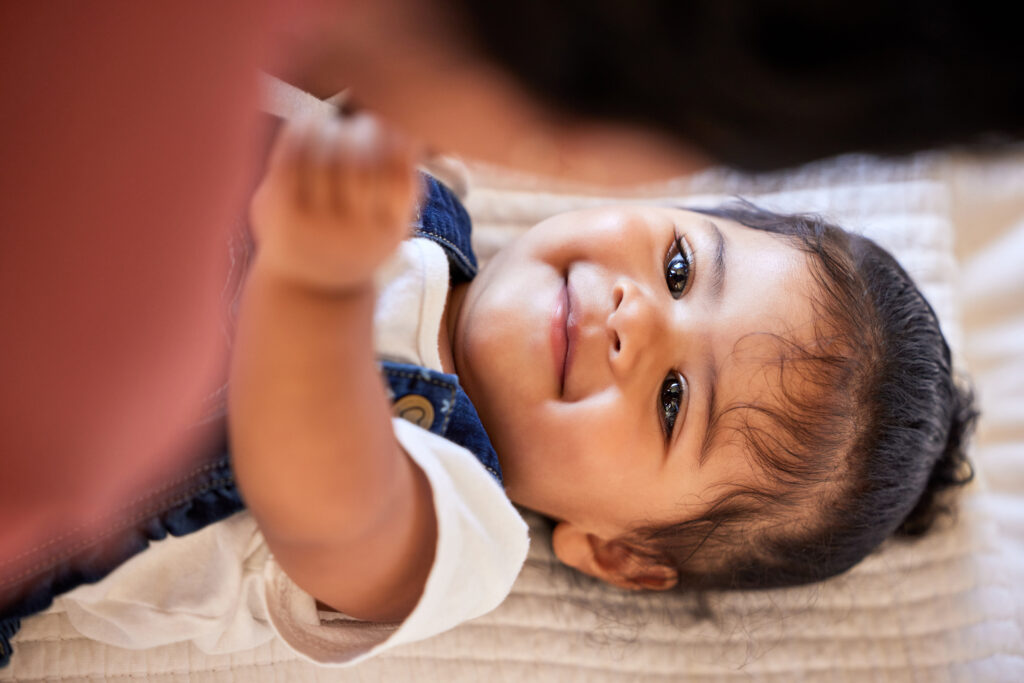
6-12 MONTHS
- Appears to recognize names of family members even when the person named is not in sight.
- Responds (in gestures) to come, hi, bye-bye, etc.
- Occasionally starts making sounds as though speaking sentences.
- Occasionally sings with some familiar songs with proper words.
- Appears to understand some simple verbal request, such as ‘come here’.
- Starts understanding when adult says ‘NO’
- Uses some gestures such as shaking head when wanting to say NO.
- Uses some exclamations like “oh-oh”.
- Appears to understand simple questions like “where is the ball” (looks at ball)
- Occasionally tries to imitate new words.
If your baby isn’t imitating sounds or using gestures by now, let’s connect and pick up a few easy strategies for further steps.
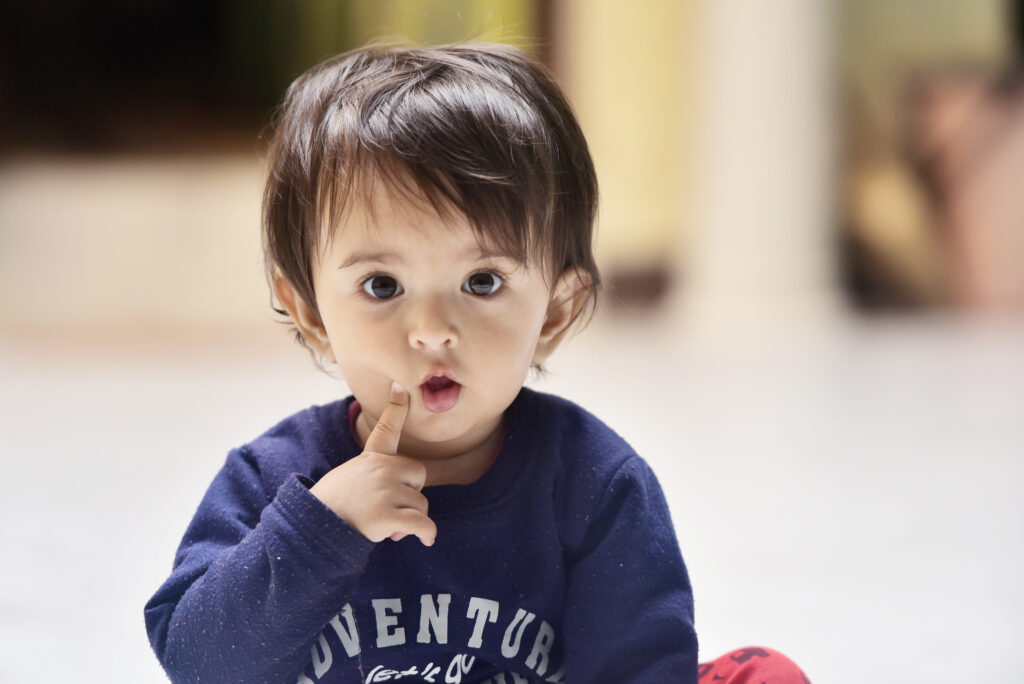
12-18 MONTHS
- Uses 5-7 or more proper words with some consistency.
- Recognizes and identifies many objects and pictures of when they are named.
- Clearly recognizes names of various parts of the body.
- Uses consonants like /t/, /d/, /w/, /n/, /h/ more often.
- Begins using words rather than gestures to express wants and needs.
- Begins repeating words heard previously.
- Imitates environmental (motor) while playing.
- Has a speaking vocabulary of at least 10-20 words.
Noticing delays or changes in word usage or understanding? Refer to our services for an assessment to check for possible regression. .
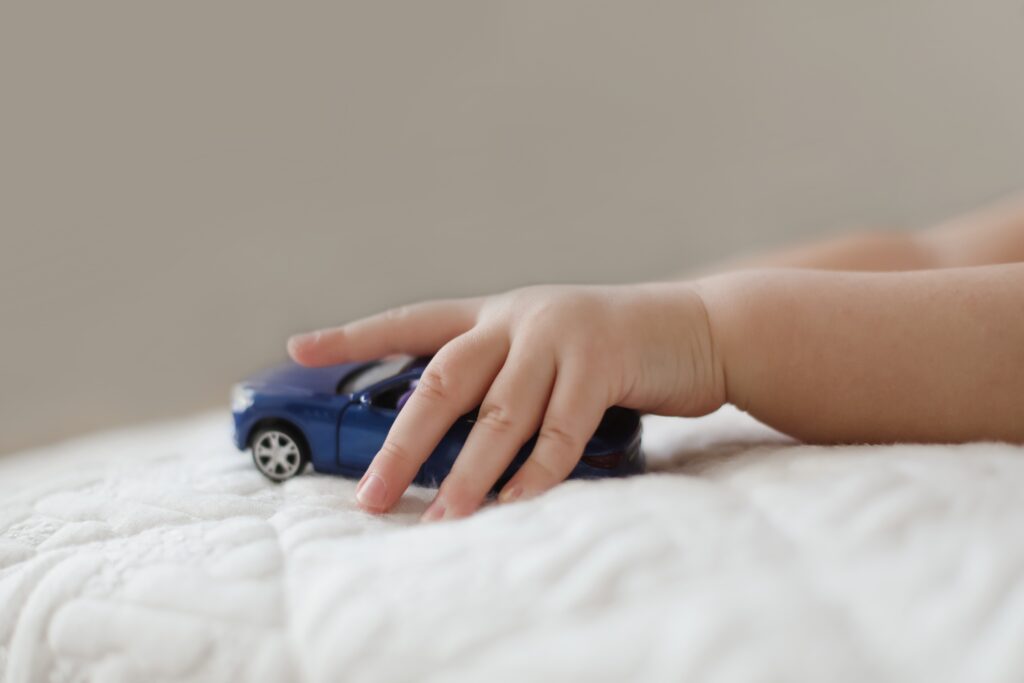
18-24 MONTHS
- Begins combining words into simple sentences, such as go, bye-bye.
- Speaks more and more new words each week.
- Attempts to tell about experiences using combinations of jargons and proper words.
- Recognizes and identifies almost all common objects and pictures of common objects when they are named.
- When asked, chooses an item from a group of items. (such as comb, spoon, etc)
- Refers to self by using his or her own names.
- Understands most complex sentence (e.g. “when we get to the store, I’ll buy you an ice cream”)
Struggling with sentence-building or vocabulary? Refer to our services for a detailed assessment of developmental milestones.

24-30 months
- Often uses personal pronouns correctly. (I, you, he, me, it, etc)
- Asks for help with some personal needs such as washing hands, going to the toilet, etc.
- Usually uses 2 or 3 word sentences
- Recognizes and identifies general family categories such as baby, mother, grand-mother, etc.
- Demonstrates an understanding of word association through functional identification (correctly answer such as what do you do with your car?)
- Understands size differences ( small vs. large etc)
- Refers to self by using a pronoun rather than by his or her proper name.
If your toddler isn’t forming phrases or showing understanding. Consult a specialist to see if speech or concept understanding is the concern.

30-36 MONTHS
- Tells gender when asked “Are you a boy or girl?”
- Names and talks about what he or she has scribbled or drawn when asked.
- Understands very long and complex sentences.
- Give both first and last name when asked.
- Shows interest in explanations of things
- Regularly relates experiences from the recent past
- Demonstrates an understanding of prepositions. ( such as on, under, front, behind, etc)
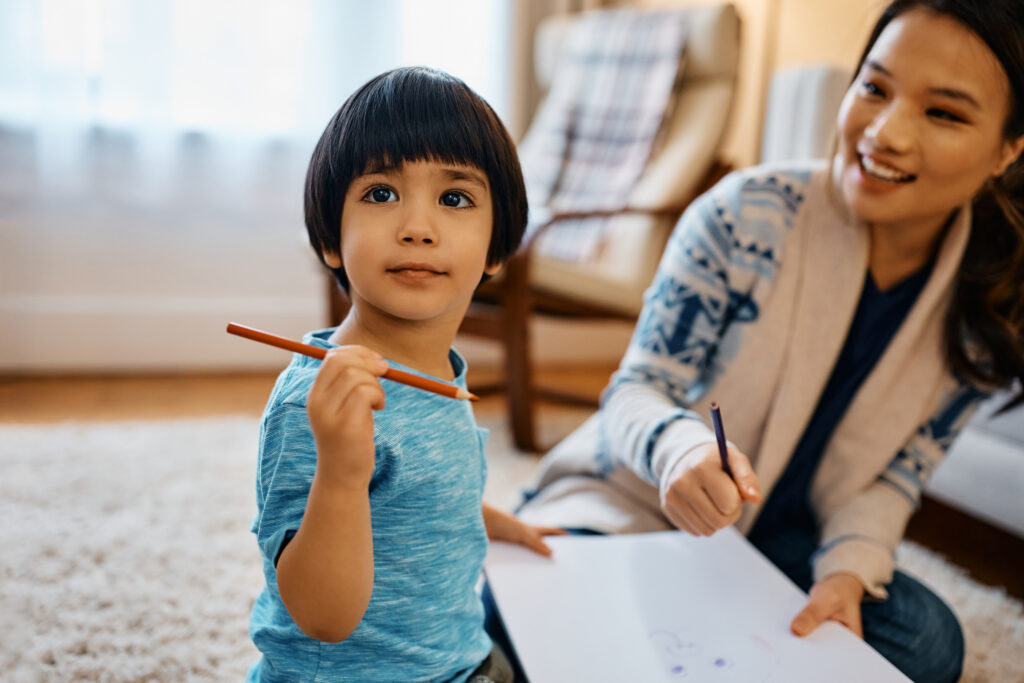
What If My Child Isn’t Meeting These Milestones?
Every child develops at their own pace, and occasional delays don’t always signal a serious concern. However, if you want to make sure everything is on track, or you have a gut feeling that something isn’t quite right—listen to your parental instinct.
Early identification can make a big difference.
As a child psychologist, I often work with families to support speech and communication delays and nothing works better than an early intervention. Early intervention not only supports language development but can tremendously improve the chances of a better prognosis, helping a child with their confidence, self esteem, social interaction, and emotional expression.
Need help understanding your child’s language journey?
Book a consultation or explore our early communication programs from Aspyre.
